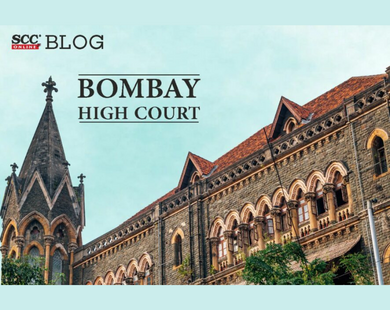Bombay High Court: The criminal writ petitions are filed by the petitioners who are the ex-managing director and ex-directors of ‘Global Energy Private Limited’ (‘company’) registered under the Companies Act, 1956, challenging the order passed by Judicial Magistrate First Class, Nagpur directing to carry out the investigation under section 156(3) of the Criminal Procedure Code (CrPC), a division bench of Sunil B Shukre and M W Chandwani, JJ., quashed the impugned order and held that the case is only of breach of contract and the civil dispute has been given the color of a criminal offence, thus, the continuation of the proceedings against the petitioners will be an abuse of process of criminal law.
The ‘company’ entered into an agreement with Respondent 2, Siddhayu Ayurvedic Research Foundation Private Limited (‘Foundation’) which is a generating company within the meaning of Section 2(28) of the Electricity Act, 2003, and operates a wind energy generating facility for the sale and purchase of wind energy for a period of ten years. Due to non-payments of due by the Company and disputes between them, Siddhayu Ayurvedic Research Foundation terminated the agreement. Meanwhile, it also filed for recovery before Maharashtra Electricity Regulatory Commission and appeal before Appellate Tribunal for Electricity.
However, pending the previous litigation proceedings, Foundation filed complaint(s) against the company before the Economic Offence Wing (EOW), Pune and Nagpur respectively, where both found the matter to be of civil nature. It further filed an application under section 156(3) of CrPC before Judicial Magistrate First Class, Nagpur which directed respondent 1-State to conduct the investigation. Pursuant to this, FIR was registered, and the present petition assails the instant FIR and seeks quashing of the same.
On the issue of non-compliance with the mandatory requirement of filing an affidavit in support of the application/complaint u/s 156(3) of CrPC, the Court placed reliance on Priyanka Srivastava v. State of Uttar Pradesh, (2015) 6 SCC 287, Sayed Anwar Ahmed v. State of Maharashtra, 2017 SCC OnLine Bom 3972, and noted that the application is supported by an affidavit in the form of solemn affirmation, but it does not substantially comply with the requirements set out in paragraph 5 and 8 of chapter VII of the Criminal Manual.
The Court further recorded that only at the foot of the complaint, paragraph in the form of solemn affirmation has been made without mentioning what portion of the statement in the application/complaint is made on the personal knowledge of the declarant and what portion of the statement in the application/complaint is made by him based on information and belief, thus, there is non-compliance of mandatory requirement i.e., filing of the proper affidavit.
On the allegations of cheating in the FIR, the Court noted that mere breach of contract is not in itself a criminal offense and only gives rise to civil liability for damages. While breach of contract cannot give rise to criminal prosecution for cheating, fraudulent or dishonest intention is the basis of the offense of cheating and criminal breach of trust which is to be determined by the facts of the case.
The Court observed that the allegations in the complaint and clauses of the agreement clarify that the relation between the Company and the Foundation was of purchaser and seller, respectively, and the main grievance in the application/complaint u/s. 156(3) is non-payment of the outstanding due by the Company.
The Court concluded that a big chunk of the amount towards the transaction is already paid and only a small portion is outstanding against the company which falsifies the allegation that the company had no intention, since inception to honour its commitment towards making payment, as per the contract.
The Court remarked that mere allegations that the Company induced the Foundation to enter into the agreement and since inception, it had the intention not to perform the obligations fully as envisaged to the agreement will not make a civil dispute into a criminal offence of cheating.
On allegations of breach of trust, the Court noted that the very nature of the transaction in the agreement is of sale and purchase and not entrustment of the property in trust, there is no question of attracting the provisions of sections 406 or 409 of the IPC. Thus, the Court held that there is no commission of offences under sections 406 and 409 of IPC.
[Harry Inder Dhaul v. State of Maharashtra, 2023 SCC OnLine Bom 200, decided on 18-01-2023]
Advocates who appeared in this case:
Mr. S.S. Dewani, Advocate, for the petitioners in all Petitions;
Mr. S.S. Doifode, APP, for respondent 1 and 3 in all Petitions;
Mr. Darasing J. Sindhu, Advocate, for respondent 2 in all Petitions.
*Arunima Bose, Editorial Assistant has reported this brief.







